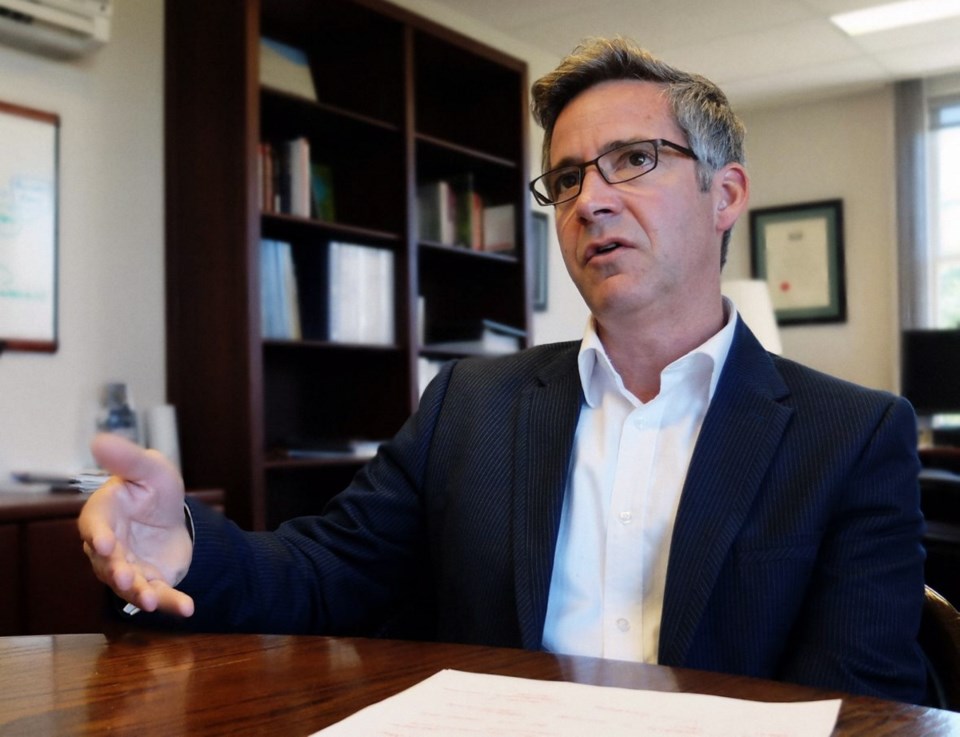A report into the $174-million electronic health record system in Nanaimo validates safety risks raised by doctors, and suggests Island Health should have spent more time tailoring the software to the needs of front-line workers before introducing it.
It does not, however, say the IHealth system should be scrapped.
After the report was released, Brendan Carr, the president and CEO of Island Health, apologized for the gap that prevented the health authority board from hearing the concerns of doctors.
In the report, Dr. Doug Cochrane, the province’s patient safety and quality officer, told physicians and staff at Nanaimo Regional General Hospital:
• There is a potential for errors without diligent staff oversight.
• The more complex care components of the system need to be reviewed and improved.
• The system resulted in decreased productivity.
Cochrane said the system needs to be modified and cannot be rolled out to hospitals in Greater Victoria and the rest of the Island before it is fully functional.
Health Minister Terry Lake ordered the external review in late July after physician complaints about the software cancelling, overriding, changing or doubling some drug orders.
The IHealth system was launched March 19 at Nanaimo Regional General Hospital, Dufferin Place residential care centre in Nanaimo, and Oceanside Health Centre in Parksville.
Nine weeks later, physicians in the Nanaimo hospital’s intensive care and emergency departments reverted to pen and paper “out of concern for patient safety.”
That practice will remain in place until the IHealth system is improved.
Cochrane’s report backs the complaints from physicians and nurses. “There is the potential for errors to occur when using the system, and these have been prevented by the diligence of users,” it said.
An oversight committee will be set up to address problems that occur when doctors electronically order drugs and tests and document their notes.
Dr. David Forrest, president of the Medical Staff Association, which represents about 250 doctors, said users of the system must determine when the electronic health record “works in a way that allows us to improve safety, enhance quality and increase the efficiency of care.”
He said he doesn’t believe patient safety is at risk during the interim, but added that the quality of care isn’t the same as it was before the implementation “and that’s a major concern.”
Island Health is working with physicians and staff to review the recommendations and set priorities. “We underestimated the impact moving to a fully automated electronic health record would have on clinicians both individually and as team members,” Carr said. “This placed tremendous strain on what is already a very challenging work environment.”
Carr said there was a disconnect between what doctors were saying and what the health authority heard. “I’m sorry,” he said.
It is important to build trust while building a safe and efficient electronic health system for the Island, he added.
The report has 26 recommendations based on 100 interviews with front-line care providers, 32 hours of system-user observations, 80 written submissions, and expert advice.
Lake, the health minister, said the implementation of IHealth has been a “rocky road” but there’s no intention to give up on providing British Columbians with an electronic health records system.
“We live in a digital age, and the health system needs to take advantage of the benefits that this technology can give us,” he said.
Island Health has a 10-year, $50-million deal with software developer Cerner Corp. of Kansas City, Missouri, for the electronic health-record software system. Island Health will spend an additional $124 million for hardware and training.
The IHealth system was scheduled for rollout to Victoria hospitals in the second half of 2017. Carr said the timeline will be revisited once the system has been stabilized in Nanaimo.
To read the full report and recommendations: ihealth.islandhealth.ca/2016/11/the-cochrane-report



